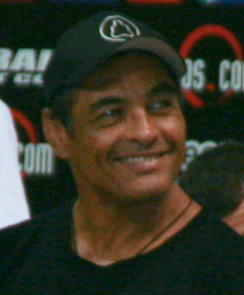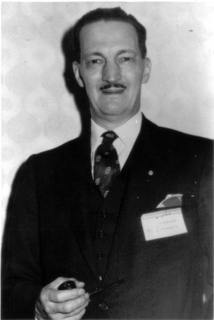A Quote by Harold Nicolson
The gift of broadcasting is, without question, the lowest human capacity to which any man could attain.
Related Quotes
[There is] one distinctly human thing - the story. There can be as good science about a turnip as about a man. ... [Or philosophy, or theology] ...There can be, without any question at all, as good higher mathematics about a turnip as about a man. But I do not think, though I speak in a manner somewhat tentative, that there could be as good a novel written about a turnip as a man.
The voice is certainly important and you can hear if it's beautiful or not, it's the gods who decide; it's more a question of what you do with the voice, which is the mysterious element. It's the personality behind the voice which makes the artist. The voice is a gift of God, but if you're not able to use this gift, what's left? Nothing but a beautiful voice, without nuance or color.
If a man, holding a belief which he was taught in childhood or persuaded of afterwards, keeps down and pushes away any doubts which arise about it in his mind, purposely avoids the reading of books and the company of men that call in question or discuss it, and regards as impious those questions which cannot easily be asked without disturbing it - the life of that man is one long sin against mankind.
Humankind, which discovers its capacity to transform and in a certain sense create the world through its own work, forgets that this is always based on God's prior and original gift of things that are. People think that they can make arbitrary use of the earth, subjecting it without restraint to their wills, as though the earth did not have its own requisites and a prior God-given purpose, which human beings can indeed develop but must not betray.
There is something in the eloquence of the pulpit, when it is really eloquence, which is entitled to the highest praise and honour. The preacher who can touch and affect such an heterogeneous mass of hearers, on subjects limited, and long worn thread-bare in all common hands; who can say any thing new or striking, any thing that rouses the attention, without offending the taste, or wearing out the feelings of his hearers, is a man whom one could not (in his public capacity) honour enough.
What distinguished man from animals was the human capacity for symbolic thought, the capacity which was inseparable from the development of language in which words were not mere signals, but signifiers of something other than themselves. Yet the first symbols were animals. What distinguished men from animals was born of their relationship with them.
Thirdly, the supreme power cannot take from any man any part of his property without his own consent: for the preservation of property being the end of government, and that for which men enter into society, it necessarily supposes and requires, that the people should have property, without which they must be supposed to lose that, by entering into society, which was the end for which they entered into it; too gross an absurdity for any man to own.
There is (gentle reader) nothing (the works of God only set apart) which so much beautifies and adorns the soul and mind of man as does knowledge of the good arts and sciences . Many arts there are which beautify the mind of man; but of all none do more garnish and beautify it than those arts which are called mathematical , unto the knowledge of which no man can attain, without perfect knowledge and instruction of the principles, grounds, and Elements of Geometry.
Perhaps the greatest discovery of my life, without question the greatest commitment, came when finally I had the confidence in God that I would loan or yield my agency to him-without compulsion or pressure, without any duress, as a single individual alone, by myself, no counterfeiting, nothing expected other than the privilege. In a sense, speaking figuratively, to take one's agency, that precious gift which the scriptures make plain is essential to life itself, and say, "I will do as you direct," is afterward to learn that in so doing you possess it all the more.






































